In November 2025, Brazil hosted the 30th Conference of the Parties (COP 30) to the United Nations Framework Convention on Climate Change (UNFCCC) in the city of Belém, marking the first time that global climate negotiations were held in the Amazon.
CAMAMAZON is a 3-year Overseas Development Aid (ODA) research project that examines how the Amazon Rainforest is mobilised in political strategies and community activism to shape the global response to climate change. We are following local and national mobilization of Brazilian youth, Indigenous Peoples, scientists and government as they attempt to influence COP30 and its social and political legacy in the region and beyond. The project aims to document the place that the Amazon holds in this mobilization and what is made of and for the forest through climate politics. Ultimately, we want to contribute to collective agreement-making that serves the people and their forest, and use the understandings gained to reconceptualise the study of International Relations.
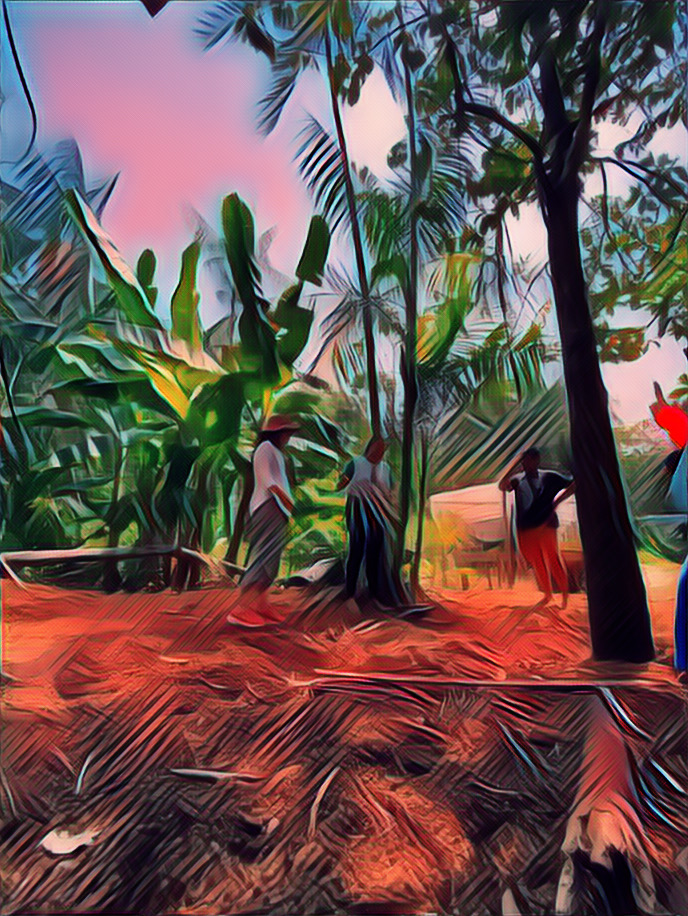
Hannah Hughes
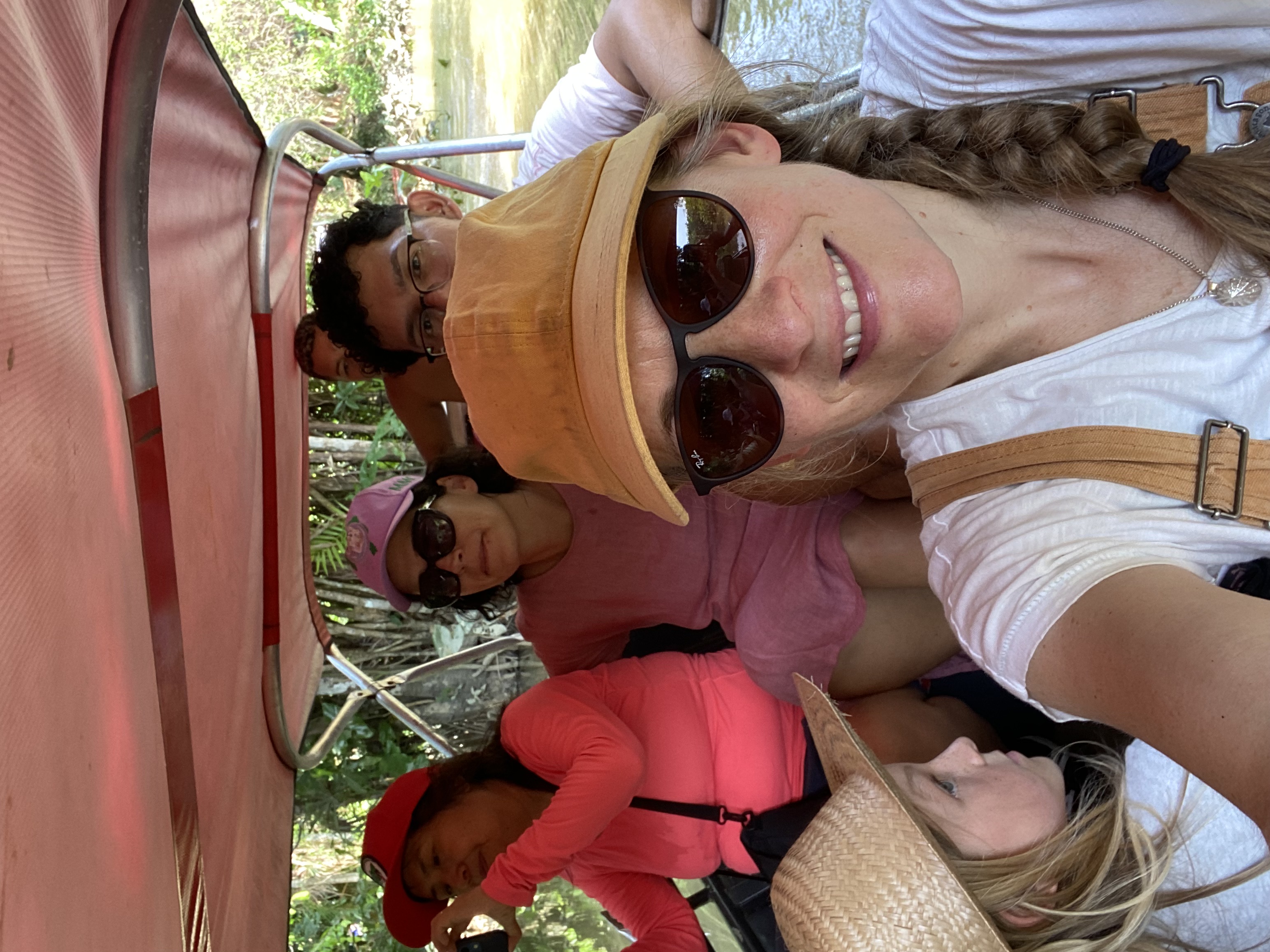
Hannah Hughes is the principal investigator of the project. She is a Senior Lecturer in International Politics and Climate Change in the International Politics Department at Aberystwyth University. Through her research, Hannah has attempted to understand who has the power to determine the collective meaning and implications of climate change. She has studied this through the Intergovernmental Panel on Climate Change (IPCC) and the negotiation of science in the United Nations Framework Convention on Climate Change (UNFCCC). Through the project, Hannah hopes to broaden participation in how climate change is collectively addressed as a shared problem and to challenge the reproduction of the current global order of relations.
Marcela Vecchione-Gonçalves
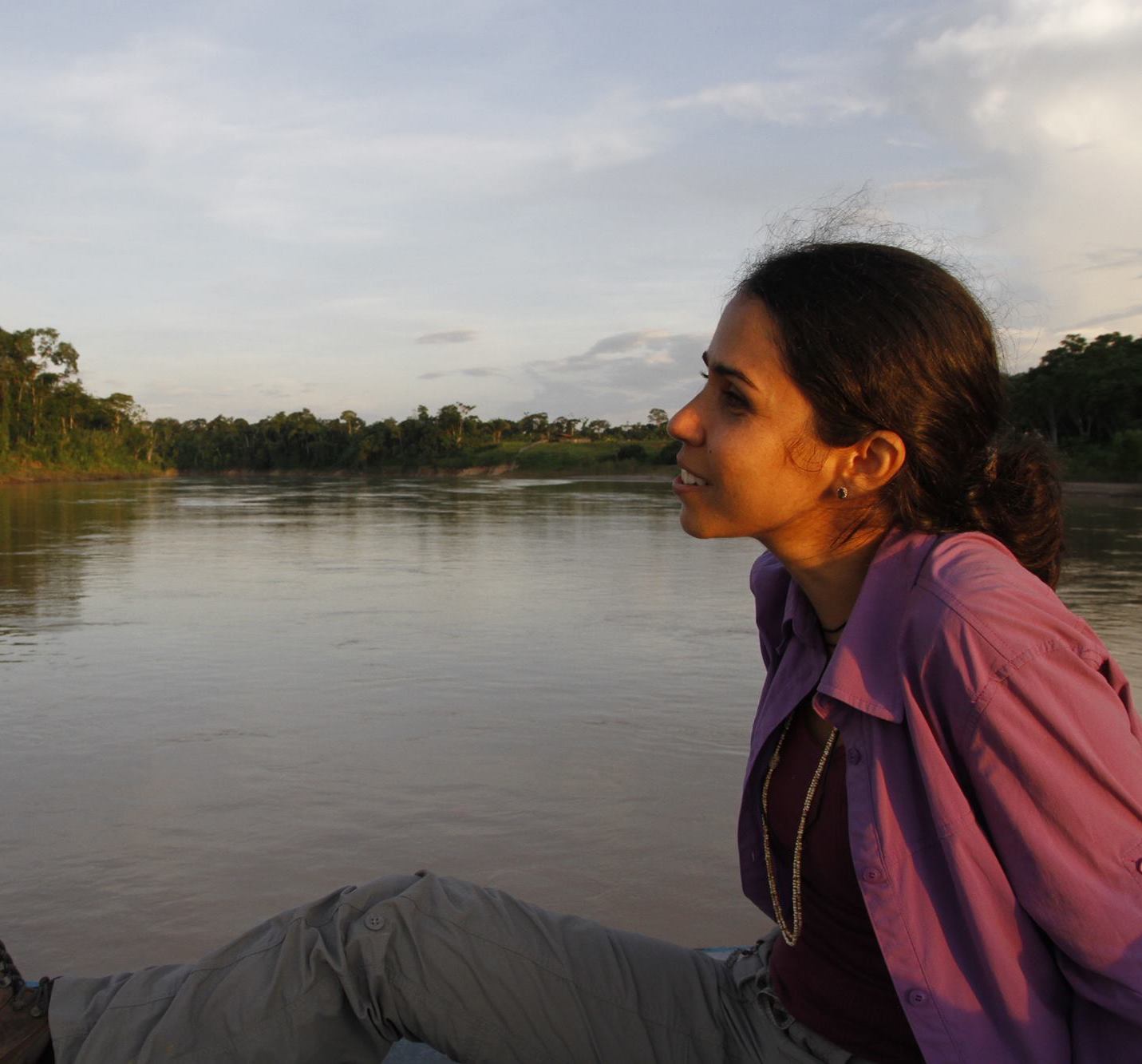
Marcela Vecchione-Gonçalves is a political scientist working at the intersections of political anthropology, agrarian and environmental studies, indigenous politics, and Amazonian historical ecology. She holds a PhD in Political Science/International Relations and a position as an Associate Professor at the Federal University of Pará (UFPA) at the Centre of Advanced Amazonian Studies (NAEA), where she teaches Global Development Governance, Amazonian Economic Sociocultural and Sociopolitical Formations, Amazon and the Politics of Climate Change and Epistemological and Interdisciplinary Foundations for Politics at the Tropics. She has been a postdoctoral researcher at the University of Antwerp as part of the project Environmental Policy Instruments Across Commodity Chains Multilevel Climate and Biodiversity Governance in Brazil, Colombia, and Indonesia. In CAMAMAZON, Marcela facilitates processes from and at NAEA with the project partners, particularly working with Amazonian Indigenous and local peoples associations to partner and engage with their politics for mobilizing spaces, alliances, and participation at COP30.
Verônica Korber Gonçalves
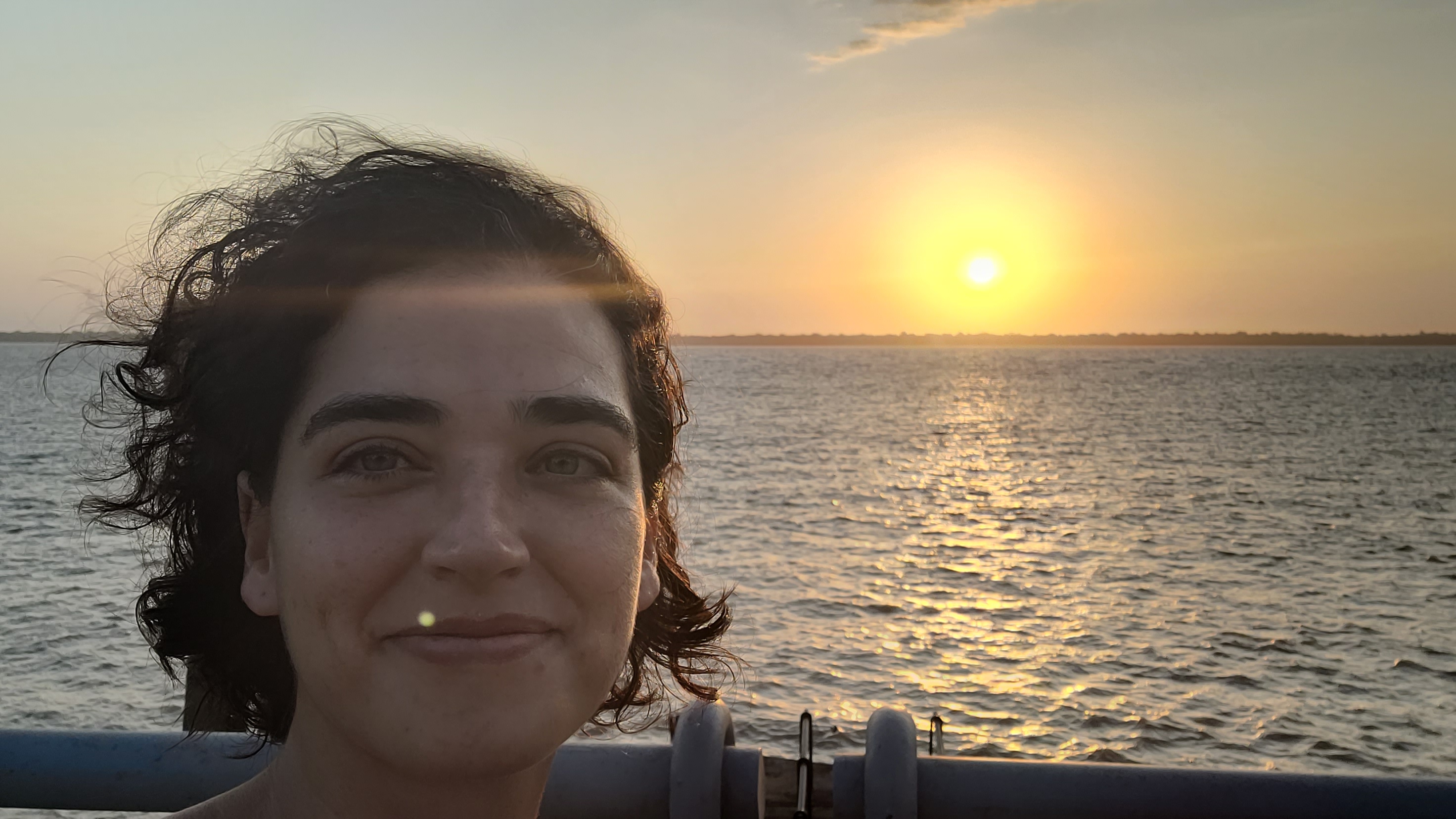
Veronica Korber Gonçalves is a co-investigator on the project. She is a professor of International Relations at the Federal University of Rio Grande do Sul (UFRGS) and the University of Brasília (UnB). Her research focuses on climate justice within global climate governance. Through the CAMAMAZON project, Veronica investigates how the Brazilian federal government is organizing and positioning itself as the presidency for COP30. The government has emphasized its ambition for the event to be the “COP of the Amazon” and the “most democratic and participatory COP.” By exploring how the federal government is shaping the narrative around COP30, Veronica aims to reflect on the limits and challenges of climate policy debates in Brazil.
Cristina Y. A. Inoue
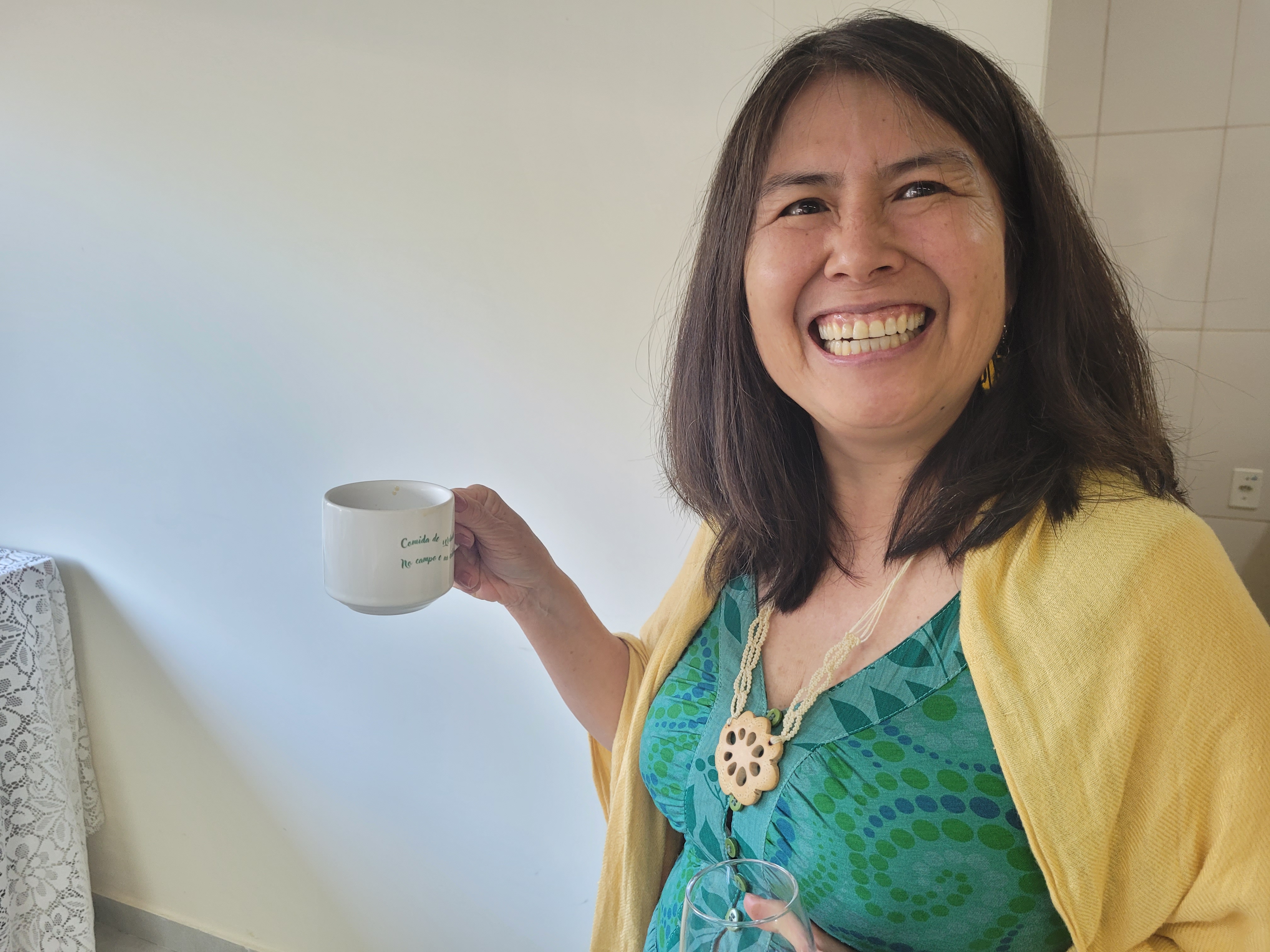
Cristina Y. A. Inoue has been researching global environmental politics and governance in the Amazon since 2001. She is Associate Professor at Radboud University. Cristina focuses on environmental justice and transformative governance, interrogating to what extent initiatives like the COP30, international assistance and (socio)bioeconomy projects are just and recognize Indigenous and local communities’ ways of knowing and being. Through the project, she aims to listen to other voices and contribute to youth empowerment.
Diana Valencia-Duarte
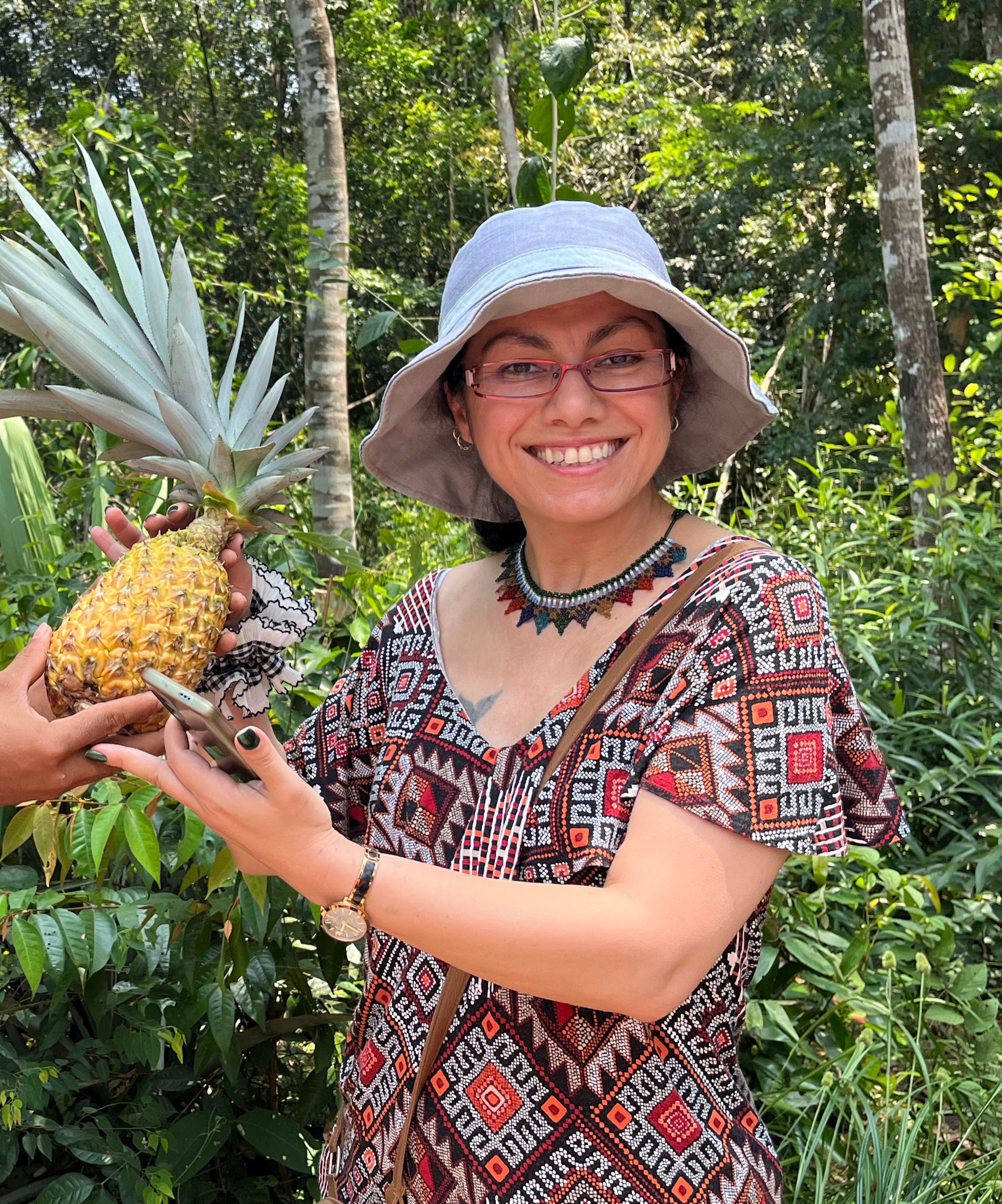
Diana Valencia-Duarte is a lecturer in the History of the Global South in the History and Welsh History Department, Aberystwyth University. Her research has been mainly focused on the history of peasant communities and their territories in Colombia. Her work integrates environmental history within transdisciplinary research, uncovering narratives of survival and resistance against a backdrop of violence, oppression, and anti-peasant policies over the last century. She has collaborated on participatory projects with Indigenous and Black communities, women, victims of conflict, and peasant organizations. Additionally, she is now contributing to CAMAMAZON and engaging with storytelling research networks that work with migrant populations in Wales and South Asia.
Erzsébet Strausz
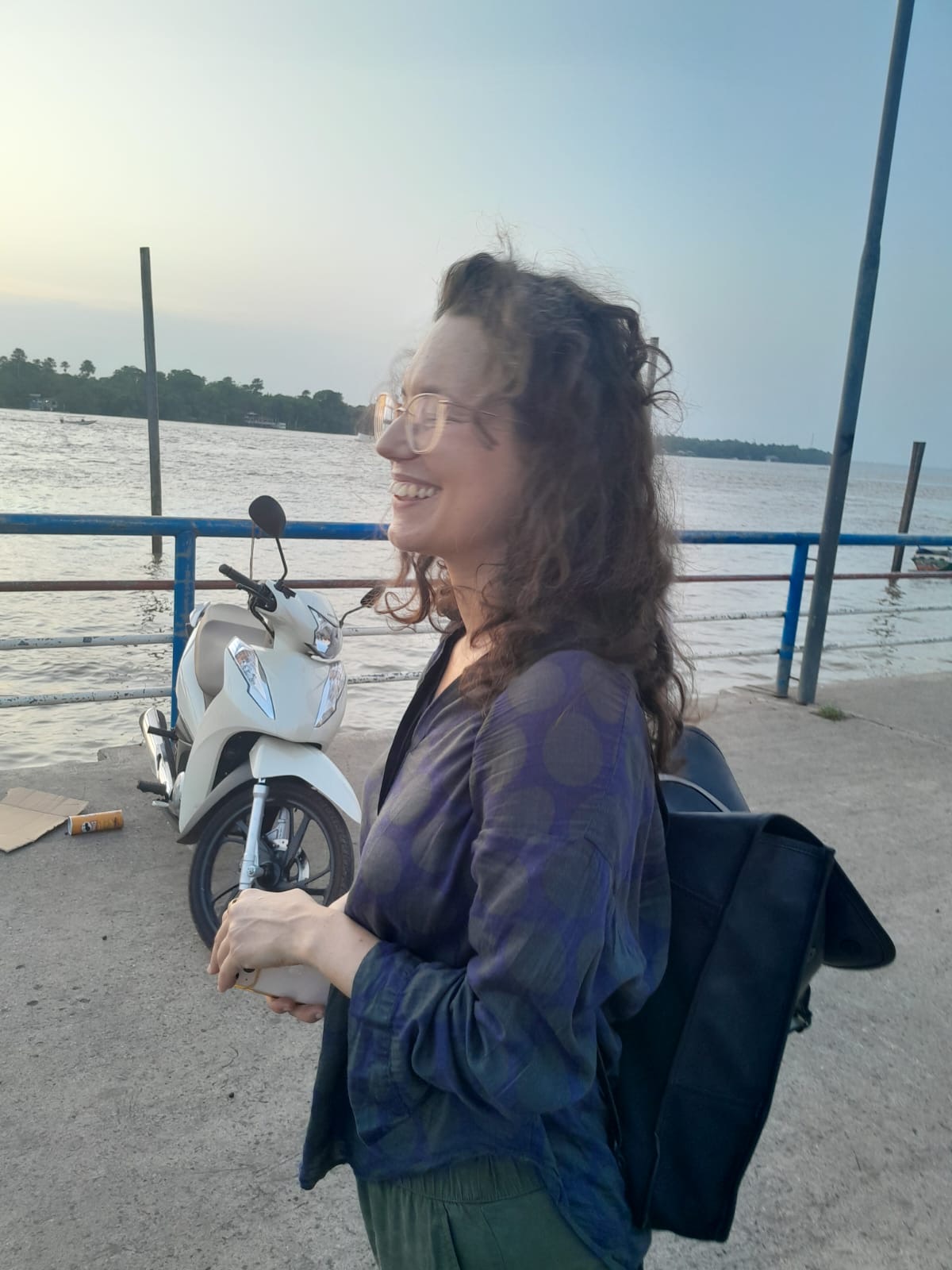
Erzsebet Strausz is a co-investigator of the project. Her research explores alternative knowledge practices, more-than-human encounters and the politics of everyday life. She is interested in creative, experimental, and narrative research methods in the study of world politics and collaborates with artists, NGOs and communities. Through this project Erzsebet seeks to co-create and share embodied, plural ways of knowing that can transform our disconnection from the living world and unlock more wholesome and caring modes of being, acting, and being together.
Matthaeus Menezes Assef
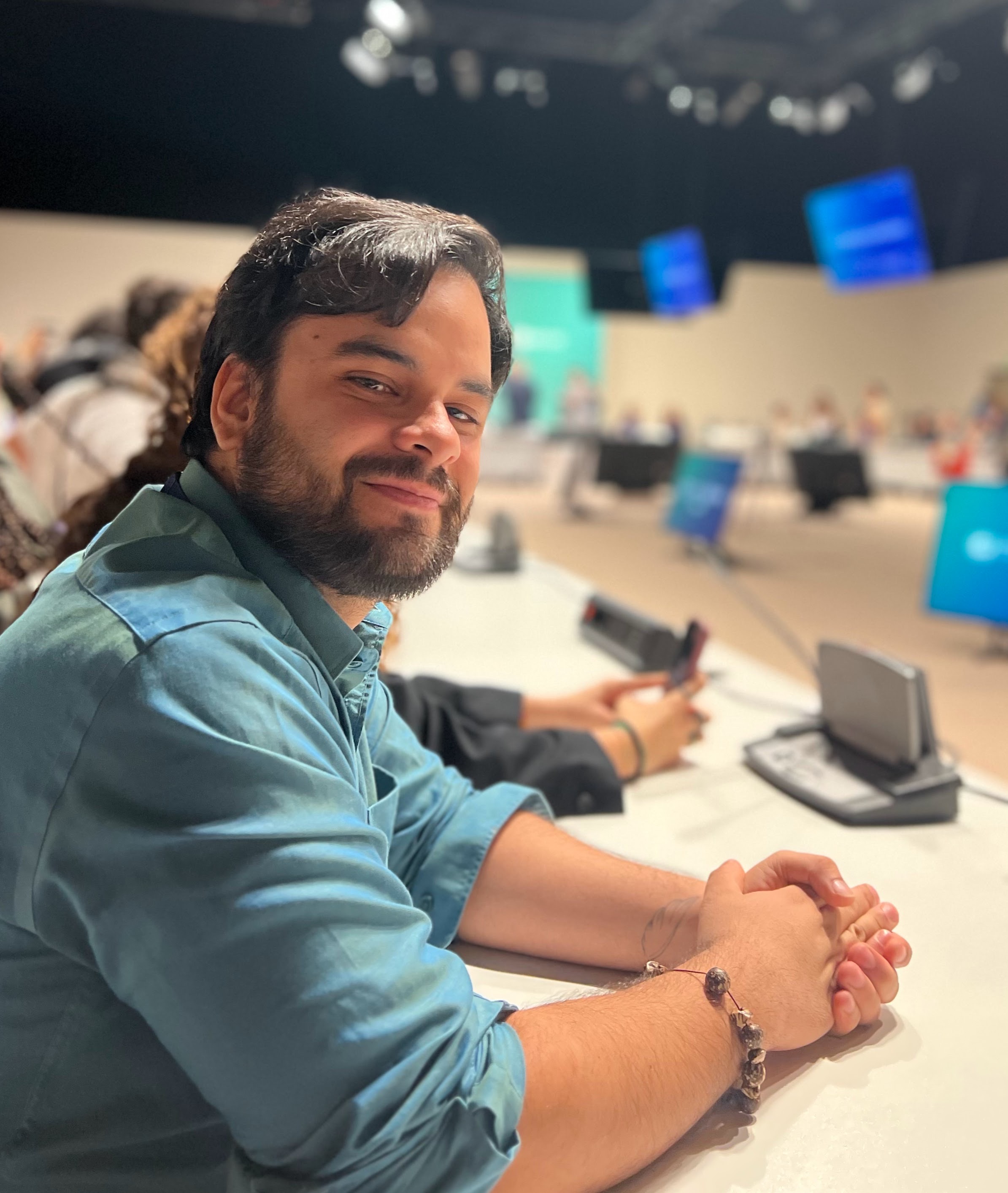
Matthaeus Menezes Assef is a Communications and Research Dissemination Assistant at CAMAMAZON. He is the Research and Analysis Coordinator at CONJUCLIMA (Youth Climate Council—Brazil) and also works with climate change communication on social media. He is studying for a Masters in Climate Futures at the University of Leeds. He has a bachelor’s degree in international politics and climate change from Aberystwyth University. He has participated in several COPs and other climate conferences for young people. His primary focus is to share information about the climate crisis and the international scenario in a simple way.
Project Partners
The project is following four actor groups as they mobilise for COP30: Indigenous Peoples, youth, science and government. In order to achieve the project objectives of supporting a climate politics that serves the people and their forest, and to use the knowledge gained tto inform a re-conceptualisation of International Relations, we invited local and national representatives of organisations to partner with the project. Our relations with our project partners are mediated through our focal points and we are developing protocols with each to identify the shared interests and values that underpin our partnership, the agreed activities and final co-produced products.